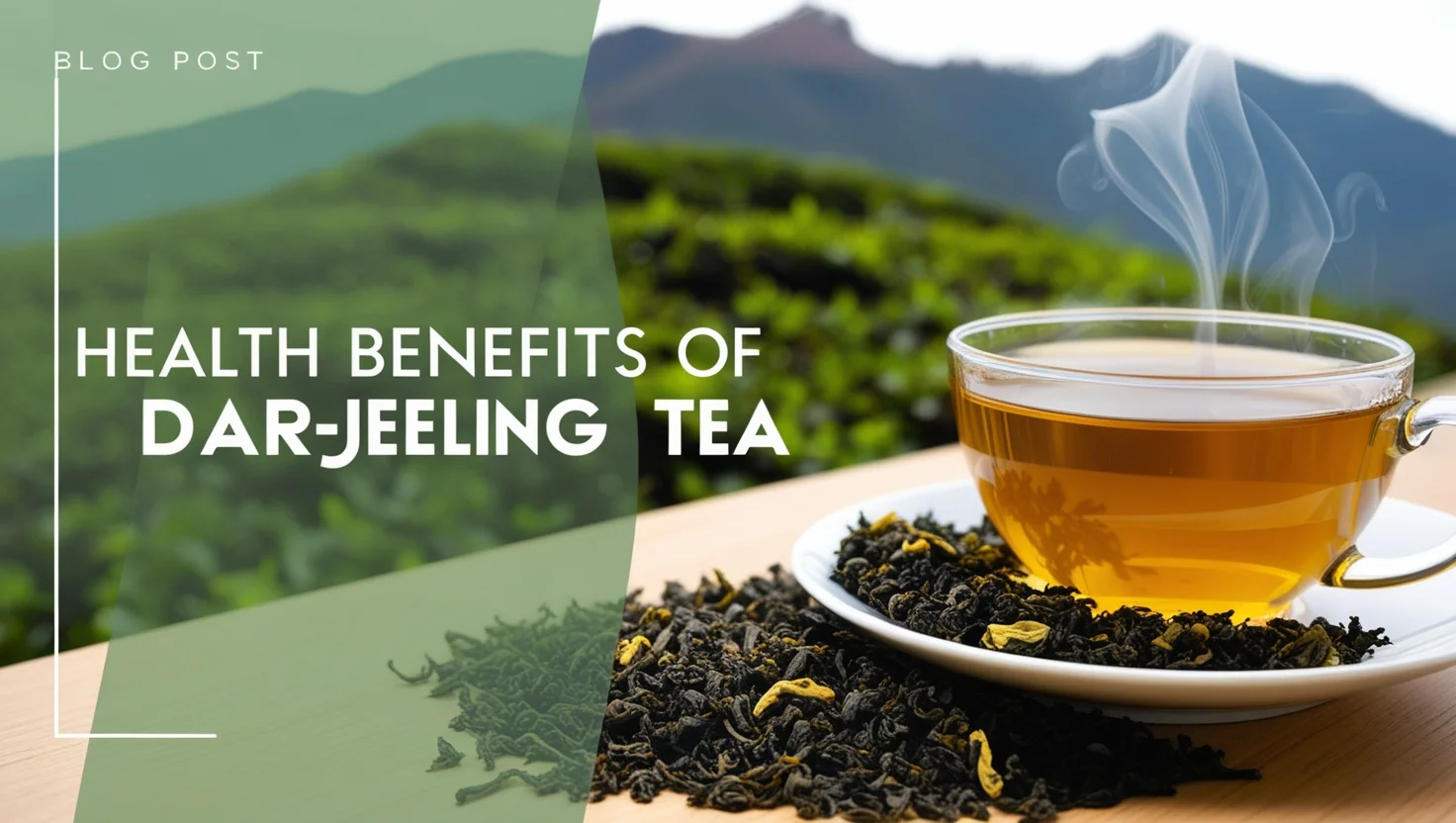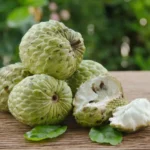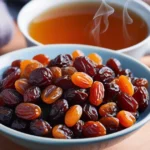Is Darjeeling Tea Good for You? Uses, Benefits, and How to Brew It
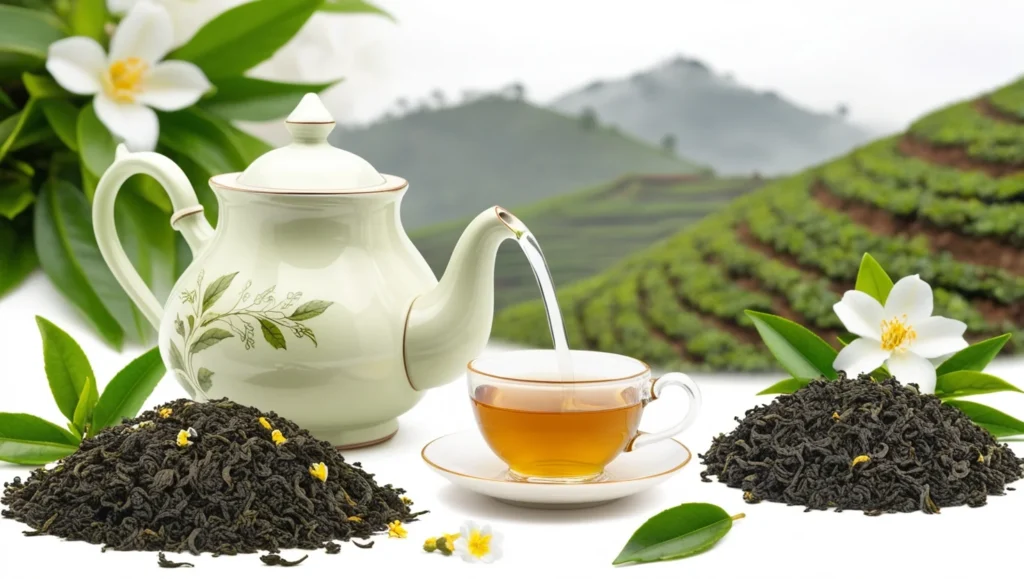
The world recognizes Darjeeling tea for its exceptional flavor and numerous health advantages. It is often referred to as the “Champagne of teas” due to its fancy and delicate flavor. However, it’s important to note that it also offers numerous health advantages. This blog post will explore Darjeeling tea, its benefits, and how to brew the perfect cup at home.
What is Darjeeling Tea?
The Darjeeling region in India is where Darjeeling tea originates from. The climate in this region is ideal for tea cultivation – cool, misty, and high in the mountains. This tea is highly regarded for its delicate and floral flavor.
Is it the same as black tea?
Although Darjeeling tea resembles black tea in appearance and flavor, there are slight differences. Darjeeling tea comes in various types: black, green, white, and oolong. Black Darjeeling tea is the most popular, but different tea varieties have distinct production methods and offer varying levels of strength.
Does it have caffeine?
Darjeeling tea does have caffeine, although less than coffee. Enjoy the energy-boosting benefits of Darjeeling tea without the coffee-induced jitters. For those who are caffeine-sensitive, it’s recommended to have it in the morning.
Potential Benefits of Darjeeling Tea

Now that you know what Darjeeling tea is, let’s explore some of the great things it can do for your health!
1. Rich in antioxidant content.
Antioxidants abound in Darjeeling tea. These are beneficial for your body as they combat harmful substances known as free radicals. Damaging cells and causing issues like aging and illness, free radicals are a concern. Tea antioxidants can safeguard your body against such problems.
2. Good for Your Heart
One of the most notable advantages of Darjeeling tea is its positive impact on heart health. Research has revealed that drinking tea on a regular basis can decrease the risk of heart disease. The antioxidants found in Darjeeling tea can help decrease LDL cholesterol that contributes to artery blockage.
3. Helps with Digestion
A cup of Darjeeling tea can provide soothing relief for your stomach after a big meal. It supports the breakdown of food and can provide relief for an upset stomach.
4. Helps with Weight Management
Darjeeling tea may aid in maintaining a healthy and fit lifestyle. Drinking tea can increase your metabolism and enhance calorie burning. Maintaining a healthy weight becomes easier with this.
5. Improves Mental Alertness
Feeling a little sleepy or need to concentrate? If you need a natural way to stay awake and focused, try Darjeeling tea. The caffeine in tea can gently enhance brain function, allowing for clear thinking and increased alertness.
Potential Downsides of Darjeeling Tea
Although Darjeeling tea is highly beneficial for health, it’s crucial to remember that excessive consumption can have negative effects.
1. Caffeine Sensitivity
Drinking an excessive amount of Darjeeling tea can result in sleep problems and a jittery sensation. It’s because of the caffeine. If caffeine affects you, consider reducing your intake or switching to a less caffeinated option, such as green or white Darjeeling tea.
2. Tannins and Iron Absorption
The slightly bitter taste of Darjeeling tea comes from its tannin content. Small amounts of tannins are beneficial, but they can hinder iron absorption from food. To prevent low iron levels, avoid drinking tea during meals or consult a doctor.
How to Brew Darjeeling Tea

Properly brewing Darjeeling tea is essential for maximizing its flavor and health benefits. Follow these steps for a flawless cup.
1. Begin with Pure Water: Commence with clean, pure water. It has a major impact on how your tea tastes.
2. Getting the Water Ready: To make Darjeeling tea, use water that is hot but not boiling. Bring your water to a temperature of about 85°C (185°F), just shy of boiling.
3. To make one cup of tea, add one teaspoon of loose-leaf tea. For each cup, use one teabag if you’re using a teabag.
4. Brew the Tea: Pour the hot water onto the tea leaves and allow them to steep for 3-5 minutes. Be careful not to over-steep the tea, as it may become bitter.
5. Have a great time! Once the tea is done steeping, strain the leaves or remove the teabag, then enjoy your cup of Darjeeling tea. Add honey or lemon if you want to enhance the flavor.
Nutrition

By mixing one to two teaspoons of loose tea or one tea bag with 8 ounces, or one cup, of hot water, you will have:
- Caloric content: 0
- Protein content: 0 grams.
- Fat content: 0 grams.
- No carbohydrates: 0 grams.
- Lack of fiber: 0 grams.
- No sugar content: 0 grams.
10 Proven Health Benefits of Black Tea
Now, let’s explore the depths of black tea. Have you ever heard that Darjeeling tea is classified as a variety of black tea? Darjeeling is just one of the black teas that offer incredible health benefits. Discover 10 science-backed reasons to increase your black tea consumption.
Benefits of Black Tea
1. Has Antioxidant Properties
Similar to Darjeeling tea, black tea is rich in antioxidants that combat free radicals in your body. These antioxidants have the ability to shield cells, lowering the chances of diseases such as cancer.
2. May Boost Heart Health
Consuming black tea can enhance heart health by decreasing LDL cholesterol and lowering the likelihood of heart disease.
3. May Lower “Bad” LDL Cholesterol
LDL cholesterol is the type that can block your arteries and is considered harmful. Regularly consuming black tea can lower these levels, maintaining healthy arteries and reducing the risk of heart problems.
4. May Improve Gut Health
Are you aware that black tea has digestive benefits too? Drinking tea with polyphenols can promote the growth of beneficial gut bacteria, improving digestion and overall well-being.
5. Could potentially lower blood pressure.
Drinking black tea on a regular basis could potentially lower blood pressure, offering protection against heart disease and strokes, according to several studies.
6. May contribute to reducing the chances of stroke.
Black tea has been connected to a reduced chance of stroke due to its positive impact on heart health and circulation.
7. May Lower Blood Sugar Levels
Black tea could be beneficial for those with high blood sugar. Research indicates that black tea compounds can help regulate blood sugar levels, making it a suitable option for diabetes management and prevention.
8. Could potentially lower the chances of developing cancer.
Black tea antioxidants may reduce the risk of specific cancers like skin, lung, and breast cancer.
9. Enhance your focus abilities.
The combination of caffeine and L-theanine in black tea can boost mental alertness and concentration without the coffee jitters.
10. Easy to Make
The ease of preparing black tea is one of its best qualities. Whether you prefer it hot or cold, you can prepare a cup in minutes and reap all the advantages.
Different types of Darjeeling tea.
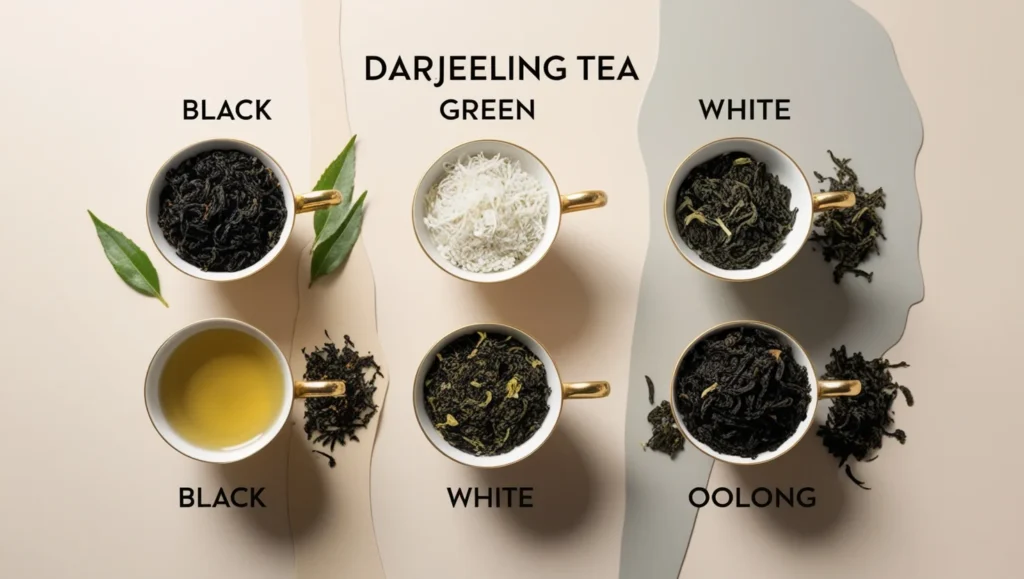
There are different types of Darjeeling tea, each with its own unique flavor.
First Flush is a light, flowery tea with a slightly astringent taste. It is harvested in early spring and has a pale golden color.
Second Flush is harvested in late spring and has a deeper golden color. It has a fruity and sweet flavor that is more prominent and strong.
Monsoon or Rain Tea is harvested during the rainy season and is often used for blending. It has a stronger and bolder taste.
Autumn Flush is harvested in the fall and offers a balance between the light first flush and the powerful second flush. It has a deeper color and a mellow flavor.
White Darjeeling is a delicate tea with minimal processing. It has silvery, unrolled leaves and a light, sweet, and fragrant taste.
Green Darjeeling is less dense compared to other varieties and is unfermented. It has a fresh, vegetal taste with a hint of sweetness in the aftertaste.
Oolong Darjeeling is a partially fermented tea that combines the qualities of black and green tea. It has a smooth, fruity, and somewhat flowery flavor.

People consider Darjeeling teas the best because they possess distinctive, delicate, musky flavors and strong, often fruity aromas. These characteristics are unique to the teas grown in the Darjeeling region on the Himalayan foothills.
Place a teaspoon of loose-leaf Darjeeling tea in a small teapot. Boil water and let it steep for 3 minutes. To preserve the original flavor, it’s best to skip adding milk, sugar, sweetener, or lemon.
Studies have shown that drinking tea on a regular basis can reduce the risk of most causes of death by 15%, lower the risk of incident heart disease and stroke by 20%, and decrease the risk of fatal heart disease and stroke by 22%.
Darjeeling green tea is more beneficial than similar-quality black Darjeeling tea due to lower processing and caffeine levels.
To truly appreciate Darjeeling tea, it’s best to drink it without adding milk, sugar, or lemon. Additives can diminish the delicate flavor of Darjeeling tea.
The strong aroma and often fruity and musky flavor of Darjeeling teas make them famous.
Enjoy Darjeeling teas at any time of day by selecting from different flushes.
Hi there! I’m content writer and blogger. With over two years of experience, I’ve shared my passion for writing across various platforms. I firmly believe in the transformative power of words and look forward to sharing this journey with you. Enjoy my work!
